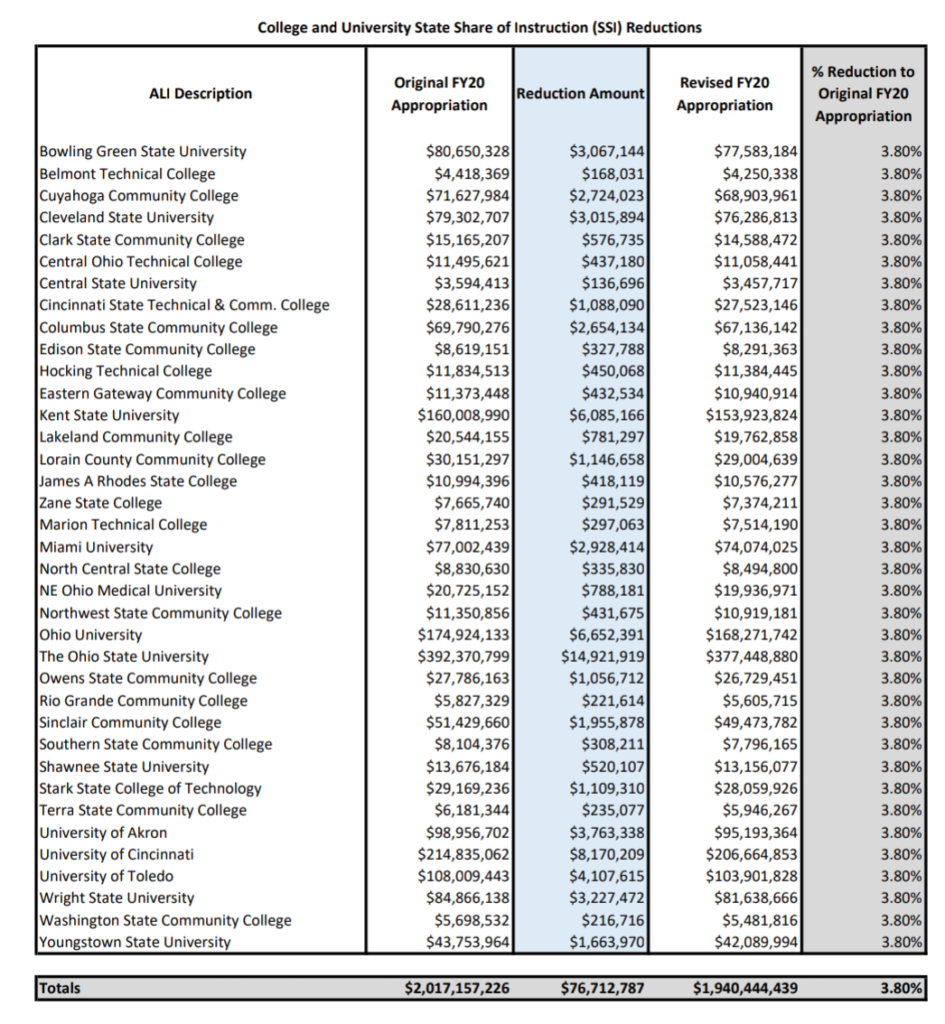The following is an open letter sent by the members of the Wittenberg AAUP chapter to their university president. The Ohio Conference AAUP fully supports the chapter and their efforts to promote and enforce standards of shared governance.
June 9, 2020
An Open Letter to the President, Provost, Board of Directors, and Faculty of Wittenberg University
We, the members of the Wittenberg Advocacy Chapter of the AAUP write to voice our deep concern about Wittenberg’s future given decisions about the University being made outside of and inconsistent with the long history of shared governance at Wittenberg University.
We are cognizant of the need for significant changes in order to meet Wittenberg’s challenges and the rapidly changing higher education environment. Many of these challenges were present prior to our 2019-2020 admissions decline and are of course exacerbated by our low enrollment numbers and the impact of the global health crisis on recruitment, retention and the general financial stability of the institution.
However, the publicly announced plan by the Board of Directors to suspend portions of the Faculty Manual, when/if deemed necessary, and the lack of transparency about ongoing deliberations outside of normal faculty governance structures, in lieu of declaring financial exigency, creates multiple concerns. We are worried in particular about the impact that AAUP sanction – for violation of shared governance – would have on the reputation of the University. The stated intention of the administration to suspend parts of the Faculty Manual is a direct violation of the national AAUP’s Principles and Standards for the Covid Crisis. As stated in this document: “Under the academic principles and procedural standards long promulgated by the AAUP, such action is unacceptable.”
Moreover, we have grave concerns about the ways in which decisions are being made currently and into the immediate future that will affect our curricular integrity, and how those decisions and processes might be received by our accreditation agency, the Higher Learning Commission. While faculty, for instance, are members of the Academic Futures Committee, these four faculty (on a committee of eleven members) were hand-picked, not elected, and therefore not truly representative of “the faculty.” Similarly, the administration recently appointed members to three faculty “summer working groups” whose accelerated timeline to generate curricular proposals also circumvents regular faculty governance processes.
Our chapter receives regular guidance from the Ohio AAUP, and represents a variety of faculty from different levels of seniority and departments/disciplines. Our goal is to partner with Wittenberg’s administration in the spirit of shared governance to make needed changes.
We urge the Board of Directors and the Administration to restore responsibility for the curriculum to the Faculty. We stand ready to work together to help Wittenberg into a great future. The time for an open, transparent and cooperative partnership is now. The alternative – a secretive, misguided strategy plagued with mistakes – is not the way forward. The process currently outlined by the Board of Directors violates the standards set by the national organization representing academic professionals.
The Faculty Members of the Wittenberg University Advocacy Chapter of the AAUP


